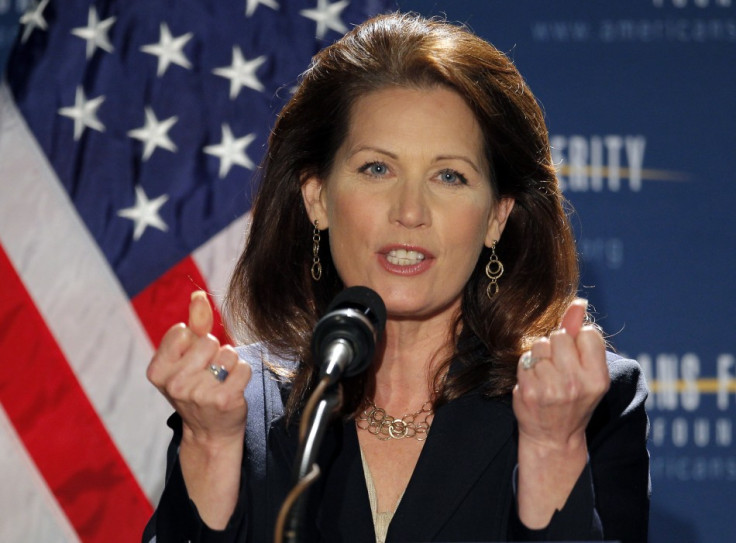Michele Bachman and Sarah Palin: Is it harder for a Republican female politician to be taken seriously?

Michele Bachmann, who on Tuesday launched a bid for the 2012 presidential elections, has often been compared to Sarah Palin. Both women are Republicans and both come from the North, both hold deeply conservative values close to their heart and just like Palin a few years ago, Bachmann is not scared to impose herself on the political scene and become, despite a lack of political experience, a serious contender.
Certain observers, however, have recently insisted that the most valuable lesson Bachmann gained from Palin is that as a republican woman running for election, she would be held to a different standard by the mainstream media.
Many insist Palin was treated unfairly during her campaign as she was asked everything from obscure foreign policy questions to details about her reading habits. What many overlook, however, is that despite all of this, what really hurt her career and chances of becoming vice president was her inability to stand as a strong contender when it came to social policy or international relations issues.
While Palin first rocked the political scene and portrayed herself as a strong woman, someone who could relate to the everyday American, she also ridiculed herself more than once by exposing her lack of geopolitical knowledge and poor understanding of foreign policy.
In 2004, for example, after being asked how she would handle the current hostilities between the two Koreas, in an interview on Glenn Beck's radio show, she said: "But obviously, we've got to stand with our North Korean allies."
More recently, when questioned about the Libyan crisis, she said: "I haven't heard the president state that we're at war. That's why I too am not knowing -- do we use the term intervention? Do we use war? Do we use squirmish? What is it?"
Bachmann on the other hand, while still committing gaffes, appears to have learned from Palin's mistake. While Palin had never really squared off with other top Republicans in a debate format, Bachmann has and showed she was ready to stand on her own.
Also while Palin widely uses social networks such as Facebook and Twitter to communicate with her supporters, Bachmann seems more at ease standing in front of her audience. In the space of just a few months, Bachmann has become the new republican darling and while the numbers of supporters keep increasing, the media have also started to look at her as a serious contender, and the republican public have become more receptive to her than to Palin.
In a March Washington Post/ABC News poll, just five percent of respondents said they had no opinion of Palin. Of those who did have an opinion, 58 percent felt favourably while 37 percent felt unfavourably.
In contrast, a new poll by the Associated Press reveals that roughly one in three republicans didn't know enough about Bachmann to have an opinion about her but among those that did 54 percent saw her in a favourable light while just 13 percent viewed her unfavourably. Those numbers mean that Bachmann has considerable room to grow as she gets better known to GOP voters.
Ms Bachmann, however, is just at the very beginning of what could prove to be a very long and very challenging campaign. Despite attacking the Obama administration on a wide range of topics, she has yet to come up with solid economic and social plans and prove that she has a minimum of knowledge about what is happening outside of the United States.
© Copyright IBTimes 2025. All rights reserved.




















